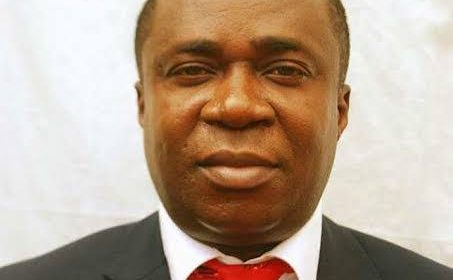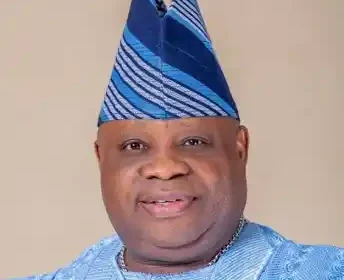Winnie Mandela, Anti-apartheid Icon, Dies at 81

Winnie Madikizela Mandela, the former wife of South Africa’s first black president Nelson Mandela, died on Monday aged 81, according to Reuters news agency
The death of the controversial anti-apartheid campaigner was announced by her personal assistant.
From Abuja, the federal capital, President Muhammadu Buhari Monday night described the passage of Mrs. Madikizela-Mandela as the great loss of an African woman.
The president, in a statement by one of his media aides, Malam Garba Shehu, described Winnie as a woman of uncommon determination, steadfastness and perseverance whom he said held aloft the torch of the struggle against institutionalised discrimination even while her ex-husband, Mandela, was incarcerated.
BBC on Monday quoted a family spokesman Victor Dlamini as saying in a statement: “She died after a long illness, for which she had been in and out of the hospital since the start of the year.
“She succumbed peacefully in the early hours of Monday Pafternoon surrounded by her family and loved ones.”
She earned the moniker “the mother of the nation” thanks to her marriage to Mandela and her anti-apartheid activism.
Winnie Mandela, whose reputation became tainted legally and politically in later years, was regarded with her late former husband as icons of the anti-apartheid struggle, which lasted for nearly three decades. Indeed, both were pictured hand-in-hand as Mandela walked free from prison after 27 years.
But her legacy as an anti-apartheid heroine was soon washed-up after the veil was lifted on her activities, which revealed the ruthless side of her.
During the twilight years of apartheid, facts about the brutality of her Soweto enforcers, euphemistically called the “Mandela United Football Club (MUFC)”, emerged to the dismay of her late former husband.
Her reputation earned her a new soubriquet, which became “Mugger of the Nation” from “Mother of the Nation”. She was fingered in the gruesome murder of 14-year-old activist Stompie Seipei, whose body was found near her Soweto home with his throat cut. She was later convicted in 1991 of kidnapping and assaulting Stompie, because he was suspected of being an informer, and handed a six-year jail term, which was reduced on appeal to a fine.
She was routinely harassed, arrested, jailed and banished by the white apartheid during Mandela’s 27-year incarceration.
But her hard-line stance, which revealed her as unforgiving, contrasted with the reconciliatory posturing of her late former husband, who worked hard to forge a new South Africa free from the shadows of its past.
Before South Africa’s post-apartheid Truth and Reconciliation Commission (TRC), she refused to show remorse for her abductions and murders carried out in her name and only conceded that “things went horribly wrong” after the pleadings of the TRC chairman Archbishop Desmond Tutu.
In its final report, the TRC held her “politically and morally accountable for the gross violations of human rights committed by the MUFC”.
She was back in court four years later on charges of fraud and theft in relation to an elaborate bank loan scheme. Reuters quoted the magistrate Peet Johnson as saying, while he sentenced her to five years in jail, which was later overturned on appeal: “Somewhere it seems that something went wrong,” magistrate Peet Johnson said as he sentenced her to five years in jail, later overturned on appeal. “You should set the example for all of us.”
The irreconcilable differences were responsible for ending not only her marriage with Mandela but also for sullying the esteem in which she was held by many of her compatriots.
Indeed, it was her firebrand activism, which saw her retain the support of radical black nationalists to the end and ensured her steadfastness during the anti-apartheid struggle.
After her separation from Mandela in 1992, her reputation soon spiralled further downwards after he sacked her from his cabinet in 1995 on allegations of corruption. The couple would formally divorce the following year, after which Winnie adopted the surname Madikizela-Mandela.
Born Nomzamo Winifred Zanyiwe Madikizela on September 26, 1936, in Bizana, Eastern Cape province always known simply as “Winnie”, she became politically committed at an early age while she worked as a hospital social worker.
“I started to realise the abject poverty under which most people were forced to live, the appalling conditions created by the inequalities of the system,” Reuters quoted her as once saying.
She was spotted at a Soweto bus-stop in 1957 by Mandela when she was just 22 years old. It was from there that a whirlwind romance, which eventually ended in a 38-year-long marriage, was first nurtured.
Their marriage experienced a period of turbulence thanks to the anti-apartheid struggle and was eventually dealt a heavy blow with Mandela’s arrest and long incarceration.
Madikizela-Mandela, according to Reuters, would later describe her marriage as a sham and the birth of their two daughters, Zindzi and Zenani, as “quite coincidental” to her one true love – the struggle against white rule.
“I was married to the ANC. It was the best marriage I ever had,” the agency quoted her as often saying.
Graca Machel, who by virtue of her marriage with Mandela became South Africa’s first lady in 1998, had kind words to say about the woman who preceded her as Mandela’s spouse.
“It’s unfortunate that in our lives we don’t interact very easily but I want to state very clearly that Winnie is my hero. Winnie is someone I respect highly,” Machel was once quoted as saying.
Winnie’s relationship with the ruling African National Congress soured, no thanks to her late arrival at rallies and haranguing comrades, including Thabo Mbeki, Mandela’s successor as president.
In 2001, a television camera caught Mbeki brushing Madikizela-Mandela away and knocking off her hat after she arrived an hour late for a rally to commemorate a 1976 anti-apartheid uprising by Soweto schoolchildren and students, according to Reuters.
Then, there was her clash years later with the next president, Jacob Zuma, throwing her weight behind renegade ANC youth leader Julius Malema, who dumped the century-old movement to found his own ultra-leftist political party.
She would later confirm her support for Malema and his calls for seizure of white-owned farms and banks, revealing her contempt in 2010 for the deal her ex-husband struck with South Africa’s white minority nearly two decades before.
In a London newspaper interview, Reuters reported her attacking Mandela, who died in December 2013, saying he had gone soft in prison and sold out the black cause.
“Mandela did go to prison and he went in there as a burning young revolutionary. But look what came out,” she was quoted as saying. “Mandela let us down. He agreed to a bad deal for the blacks.”
She also dismissed Tutu, post-apartheid South Africa’s moral fulcrum, as a “cretin” and rubbished his attempts at national healing as a “religious circus”.
“I told him a few home truths. I told him that he and his other like-minded cretins were only sitting here because of our struggle and me – because of the things I and people like me had done to get freedom,” she said.
Meanwhile, President Buhari Monday night in Abuja described the passage of Madikizela-Mandela, ex-wife of South-African anti-apartheid leader and former president, Nelson Mandela, as the great loss of an African woman.
The president, in the statement by one of his media aides, Shehu, added that on behalf of the government and people of the Federal Republic of Nigeria, commiserated with the family of the deceased, the government and people of South Africa, urging them to be consoled by the knowledge that the late Winnie Mandela’s contributions to ending apartheid will not be forgotten.
Further stating that the deceased remained a pride not only to the African woman but to all Africans, Shehu said the president prayed God Almighty to comfort all those who mourn her and grant her soul eternal rest







Leave a Reply